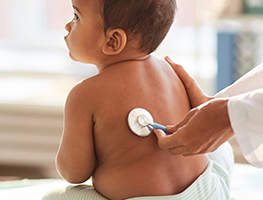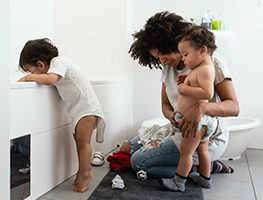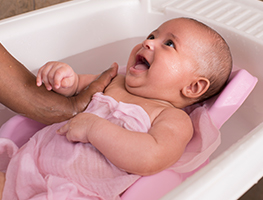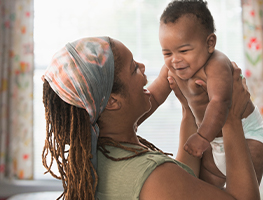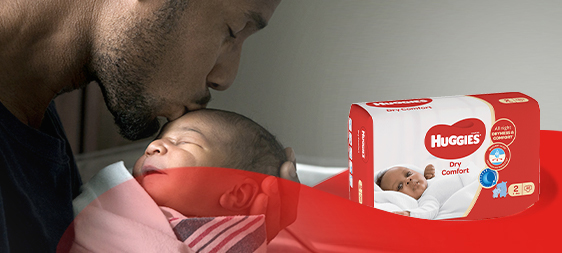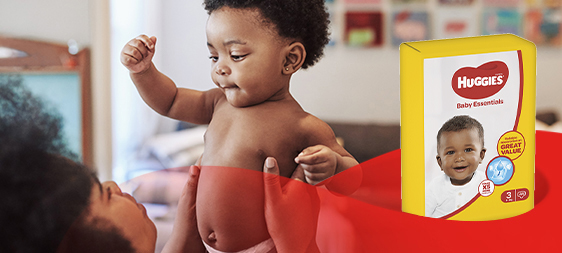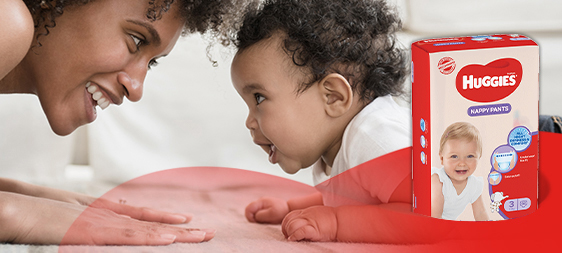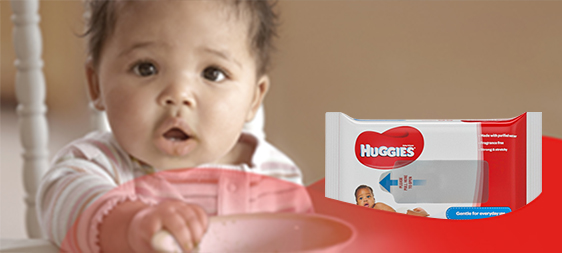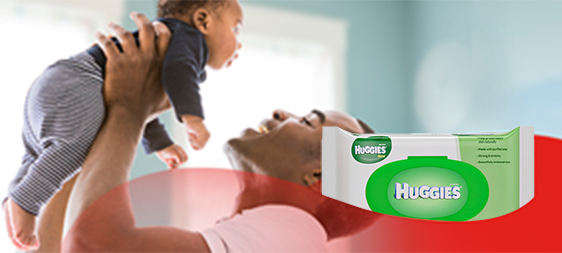As you will realise, there are degrees of prematurity. Extremely premature babies (i.e. under 28 weeks’ gestation) stay in hospital neonatal units for a long time, and the experience is tough both for them and their families, sometimes with long-term implications. Even being born between 28 and 32 weeks’ gestation can mean a long stay in hospital with quite a lot of medical support. Most babies born under 36 weeks gestation will spend at least their first week in hospital and, in any event, will be more delicate and vulnerable than babies born on or around their due date.
It is sometimes suggested that the time to start massage with your premature baby is when they reach their ‘due’ date (the time they were expected, if they had been born at term). However, individual assessment, in conjunction with your baby’s healthcare professional, will be the most helpful way to decide.
Babies have a very keen sense of smell, hearing and touch. Premature babies, even more than new babies born at term, need a lot of sleep and they have an extra need to feel secure – often wanting to be supported in a womb-like environment, in a foetal or semi-foetal position.Their nervous systems are not fully developed and are very sensitive so stimulus, therefore bright lights, loud noises and lots of handling should be kept to a minimum.
For this reason ‘containing’ holds can be an ideal way to give nurturing touch. Containing holds can either be done with your baby still in the incubator or in your arms. What is even more beneficial for you both is skin-to-skin contact (e.g. your baby has minimal clothing and is tucked inside your shirt, next to your skin).
Parents with premature babies being cared for in neonatal units need to liaise with the health professionals caring for their baby and see what may be possible.
Suggestions for what may be possible in the NICU:
Provide props that your baby can have in the incubator or cot to help them feel cosy and secure, like small soft toys they can rest against, small soft blankets that can be rolled and placed to support specific positions in conjunction with nursing approach, a soft blanket or a cot sheet that smells of you.
Make yourself comfortable and sit by your baby, if it is not possible for them to come out of their incubator for a cuddle. Relax and read your current novel, but read it quietly out loud, so your baby is comforted by the flow of your voice without needing to react in any way.
If you can’t hold your baby, hold them where they lie. Wrap one hand gently but firmly around the crown of their head, and fold the other over their tummy, or around their buttocks or legs, and be still with them. Feel them settle and relax a little more deeply into peace and / or sleep. Don’t take your hands away too soon. Be with them in that settled state, so that when you do let go, they are so deeply relaxed or asleep that they will be able to stay that way themselves for a while.
Even with tubes or lines still attached, you may be able to hold your baby, even skin-to-skin. Make sure you have plenty of time just to sit quietly holding your baby so neither of you feels rushed. The more your baby is able to settle in one position with you, and just sense you through your smell, and feel your breathing and your heartbeat, the more they will feel secure and loved, and the more their nervous system has a chance of calming and regulating. This unhurried form of touch is not only comforting for both of you, but may enhance the journey to wholeness that can be so difficult with an early start in life.
When you and your healthcare professional feel your baby is mature enough to accept some simple massage strokes, start with the legs and feet. Be slow and gentle, but firm enough for your baby to feel secure.






